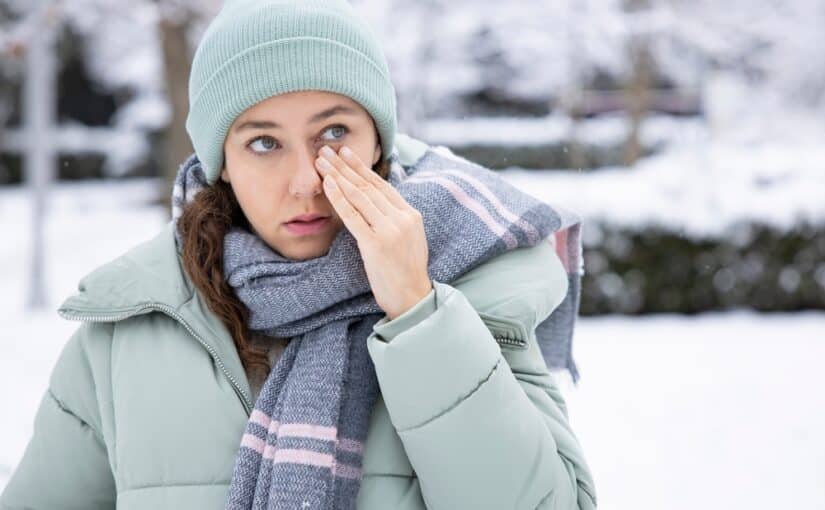If your eyes feel gritty, irritated, or tired more often as the colder weather sets in, you’re not alone. Most people with dry eyes experience symptom worsening in wintertime.
At Vista Eye Specialists, our leading board-certified ophthalmologist Binoy R. Jani, MD, has the answers. We also offer innovative dry eye treatments to help keep your eyes comfortable year-round. Read on to learn more about why winter weather is often the enemy of dry eyes, and how our advanced diagnostic and therapeutic strategies can help.
Why Winter Makes Dry Eye Worse
Winter conditions create a perfect storm for moisture loss. There are several factors involved.
- Dry air: As temperatures drop, the air outside becomes drier. This reduces tear film stability, leaving the eyes more exposed and prone to evaporation.
- Cold winds: Icy winds also accelerate drying, often sweeping what little moisture you have right out of your eyes.
- Indoor heating: Whether at home, at work, or in your car, indoor heating can quickly rob your eyes of precious moisture. Sitting near vents and space heaters can make things even worse.
- More screen time: Many people also spend extra time on digital screens during the colder months. When you do so, you blink less frequently, which can prevent natural tear replenishment.
How Professional Treatment Helps With Dry Eyes
While artificial tears and humidifiers offer temporary relief, persistent dryness requires medical evaluation. At Vista Eye Specialists, dry eye treatment begins with identifying the specific cause of the problem—whether it’s reduced tear production, rapid tear evaporation, or inflammation of the eyelid glands. Evaporative dry eye is the most common type, often related to meibomian gland dysfunction, where tiny oil-producing glands along the eyelid margins become blocked or produce poor-quality oil.
This oil layer is essential for preventing tears from evaporating too quickly, so when the glands don’t function properly, tear film instability and dry eye symptoms develop.
Using advanced diagnostic technology, Dr. Jani detects the underlying cause of your dry eyes and tailors each treatment plan to restore balance to the ocular surface.
Options may include prescription eye drops, targeted eyelid therapies, nutritional guidance, or in-office procedures that help maintain moisture and reduce inflammation. Dr. Jani possesses deep medical and surgical expertise, ensuring comprehensive management from a specialist who understands every aspect of ocular health.
While we can effectively treat the root cause of dry eyes, you also need to manage environmental triggers that make it worse. That’s why Dr. Jani emphasizes to our patients the importance of paying attention to possible triggers.
Some helpful techniques to manage triggers may include:
- Increase humidity at home with a humidifier
- Stay hydrated by drinking plenty of water
- Blink often, especially when using screens
- Wear sunglasses outdoors to block wind exposure
- Avoid direct heat, such as car vents blowing toward your eyes
Restore Your Eye Comfort in Fredericksburg and Culpeper
Dry eye may worsen during the winter, but it doesn’t have to limit your comfort or visual clarity. If you’re struggling with dryness or discomfort, schedule your appointment at Vista Eye Specialists or call 540-208-5827 for expert dry eye treatment in Fredericksburg and Culpeper, VA.


